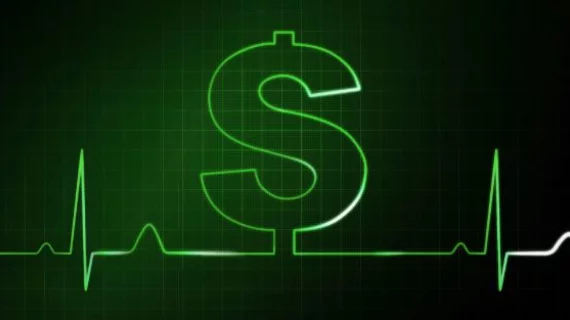Well-to-do individuals shell out thousands—and sometimes tens of thousands—of dollars for “executive” screening programs at top-ranked hospitals. But is that money really well-spent?
Probably not, according to Alan Ge, MA, of the St. Louis University School of Medicine, and David L. Brown, MD, of Washington University School of Medicine in St. Louis, who published a research letter on the topic Jan. 13 in JAMA Internal Medicine. The idea of preventive screening is to catch disease indicators and risk factors early, thus reducing mortality from common conditions like CVD and cancer, but no data actually support that premise.
“Very few screening tests have been reported to reduce mortality in asymptomatic individuals,” Ge and Brown wrote. “Nevertheless, there is an enduring belief in the benefit of using diagnostic tests to find disease in its earliest stages.”
Due to an overwhelming demand for early diagnosis, hospitals have introduced a number of screening programs, including targeted executive programs aimed at wealthy people who are able to pay for the tests out-of-pocket. The authors explored what those programs looked like at 21 hospitals consistently ranked by the US News & World Report as the best for cardiology and heart surgery between 2016 and 2019.
Ge and Brown learned from phone calls with hospital administrators that 18 of the 21 hospitals they studied offered 28 different executive health screenings, ranging from $995 for the Comprehensive Health Assessment at Houston Methodist Hospital to $25,000 for a Premier Executive Health Program at Cleveland Clinic. Of 21 hospitals, just three offered to submit patients’ charges to an insurance carrier.
Cardiology tests were commonplace in the executive packages, with 71% of patients undergoing a lipid panel, 68% taking part in a cardiac stress test and 43% undergoing cardiac computed tomography. Cardiovascular counseling was included in two programs, and an exercise consultation was included in one. Of the 12 cardiac tests offered by top-ranked hospitals, none are recommended by the American College of Cardiology, American Heart Association, United States Preventive Services Task Force or American College of Preventive Medicine for indiscriminate application to asymptomatic adults.
“In addition to clinical care, the top cardiology hospitals also provide medical education,” Ge and Brown wrote. “Offering executive physicals with tests that are not recommended for healthy persons to anyone who can pay out-of-pocket potentially sends the message to trainees that a two-tier healthcare system is acceptable, and that evidence is not important. Furthermore, indiscriminate screening can create a cascade effect and thus violate the principle of primum non nocere (first do no harm) wherein unnecessary tests may create a chain of events resulting in additional ill-advised tests or treatments that may cause avoidable physical or psychological harm.”
Rita F. Redberg, MD, and Mitchell H. Katz, MD, echoed that sentiment in a related editorial. Redberg, of the University of California, San Francisco, and Katz, the deputy editor for JAMA Internal Medicine, said that just because a patient is willing to pay for a test or medication, that doesn’t mean physicians should provide it for them if the potential harm of a test outweighs its potential benefits. The anxiety of false-positives and incidental findings that may lead to other pricey tests aren’t worth the trouble most of the time.
“One cannot help wondering: Is it not the reason that these executives spend their time and money for these tests because they believe that they will help them?” the duo wrote. “If so, that belief is mistaken and undermines the legitimacy of cardiac executive screening programs.”

